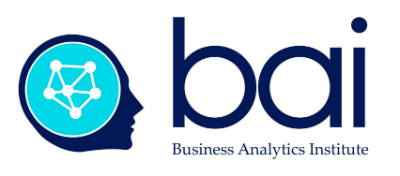"I just don’t have the time to make better decisions…."
Former Watergate chronicler Bob Woodward spoke passionately last weekend about the importance of taking our time in getting the facts right when taking decisions for ourselves and influencing those around us. [1] The high potential managers in the audience smiled wryly, for they know only too well that the pressures of modern management have made time the rarest commodity of all. They have just too many decisions to take every day – there just isn’t any time to think about the best obtainable version of the truth.
In such conditions, why should we take the time to try to improve our decision-making? After all, managerial decision-making is a time consuming process. The ambiguity, the complexity and the risk inherent in our jobs may well push many managers to take as few decisions as possible. Many suggest that nearly fifty years of business process improvement has largely eliminated the need to address simple problems – we can follow the procedures, read the scripts, and if worse comes to worse, just make up the facts as we go along. The problems that are left : optimizing career choices in a changing economic environment, promoting engagement and well-being in the work place, actually helping customers solve their problems, are perhaps too complex to spend any real time solving. They argue that you should’t be wasting your time going after anything but the low hanging fruit.
As pragmatic as this line of reasoning may seem, and until further notice, managers are paid to solve problems. The harder the problem the greater the potential reward. Some rely on intuition, others apply analytics. In probability theory, the cost of the opportunity to tackle business’s real problems is often modeled in exploit or explore scenarios. Is it more profitable to trust our own experience, even if doesn’t solve the problem, or to take the time to explore new alternatives that provide more satisfying outcomes? In Decision Science, the Gittin’s Index, Upper Confidence Bounds, and even Jeff Bezos’ Guilt Minimization Framework provide overwhelming evidence of the value of exploring new lines of reasoning. [2]
Management is about finding the right balance between investments in time and in success. Improving managerial decision-making involves learning to recognize the nature of the problems we are trying to solve and the quality of data at our disposal. Machine learning implies coding human experience to detect the best, better or memorable decisions given the problem at hand. Managing teams and communities requires transforming the data into impactful decisions – both our own and those of our customers, teams and stakeholders. All three disciplines share a common goal in helping management use their time wisely.
Business Analytics is about calibrating the mind to take better decisions. Similar to a tennis player looking to optimize the lift on his backhand, time is an investment that can be well or poorly spent. Exploiting what we know about ourselves and the context of any one game will only get us so far. Time off the court is also needed to analyze the nature of he challenge at hand, as well as to explore new options and new mindsets to the game. If intuition for the gifted can sometimes win the point, analytics offers all of us room for our game to grow. The adage that “practice makes perfect” depends on taking the time to develop the most obtainable version of the truth.
The practice of business analytics is heart and soul of the Business Analytics Institute. In our Summer School in Bayonne, as well as in our Master Classes in Europe, we put analytics to work for you and for your organization. The Institute focuses on five applications of of data science for managers: : working in the digital age, data-driven decision making, machine learning, community management, and visual communications. Data-drivfen decision making can make difference in your future work and career.
______________
[1]P Calfas, J., (2017). Read the Advice Bob Woodward and Carl Bernstein Gave at the White House Correspondents' Dinner, Time Magazine, Apr 30, 2017, http://time.com/4760743/white-house-correspondents-dinner-woodward-bernstein-speech-2017/
[2] Christian, B. and Griffiths, T., (2016). Algorithms to Live By : the Computer Science of Human Decisions, Henry Holt and Co.: New York


